 W
WAnthony Askew (1722–1774) was an English physician and is best known for having been a book collector. His collection was purchased by the British Museum and books purchased by George III of Great Britain were added to the King's Library.
 W
WJohn Bagford was an English antiquarian, writer, bibliographer, ballad-collector, bookseller, and biblioclast.
 W
WWalter Dorning Beckton was a British philatelist who signed the Roll of Distinguished Philatelists in 1921. He was a Manchester solicitor by profession in the firm of Hockin, Beckton & Hockin.
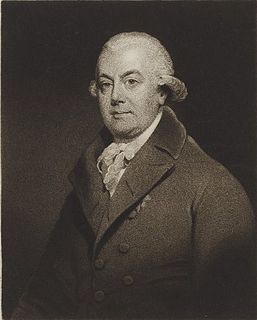 W
WJames Bindley (1737–1818) was an English official and antiquary, known as a book collector.
 W
WPhilip Bliss was a British book collector who served as Registrar of the University of Oxford from 1824 to 1853, and as Principal of St Mary Hall, Oxford, from 1848 until his death.
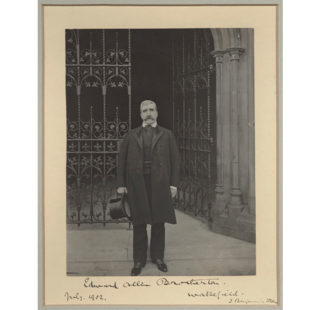 W
WEdward Allen Brotherton, 1st Baron Brotherton, known as Sir Edward Brotherton, Bt, between 1918 and 1929, was an industrialist in Wakefield, West Yorkshire, England and a benefactor to the University of Leeds and other causes. He was also a Conservative Party politician, and sat in the House of Commons between 1902 and 1922.
 W
WRichard Bull (1721–1805) was an English landowner and politician who sat in the House of Commons from 1756 to 1780. He was a noted art collector who lived in a historic house on the Isle of Wight.
 W
WRichard de Bury, also known as Richard Aungerville or Aungervyle, was an English priest, teacher, bishop, writer, and bibliophile. He was a patron of learning and one of the first English collectors of books. He is chiefly remembered for his Philobiblon, written to inculcate in the clergy the pursuit of learning and the love of books. The Philobiblon is considered one of the earliest books to discuss librarianship in-depth.
 W
WRichard Copley Christie was an English lawyer, university teacher, philanthropist and bibliophile.
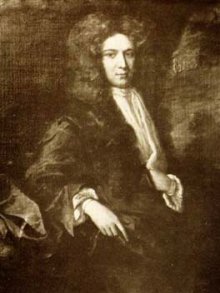 W
WAnthony Collins was an English philosopher, and a proponent of deism.
 W
WWalter Arthur Copinger was an English professor of law, antiquary and bibliographer.
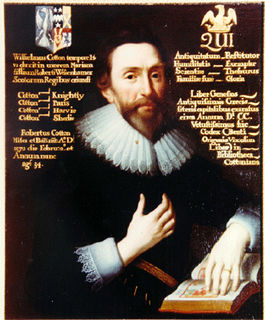 W
WSir Robert Bruce Cotton, 1st Baronet of Conington Hall in the parish of Conington in Huntingdonshire, England, was a Member of Parliament and an antiquarian who founded the Cotton library.
 W
WClayton Mordaunt Cracherode (1730–1799) was an English book and old master print collector, and a major benefactor of the British Museum.
 W
WFrances Mary Richardson Currer was a British heiress and book collector.
 W
WFrancis Douce was a British antiquary and museum curator.
 W
WCharles William Dyson Perrins FRAS was an English businessman, bibliophile and philanthropist. He was born in Claines, near Worcester, the son of James Dyson Perrins, the owner of the Lea & Perrins Worcestershire sauce factory and the grandson of William Perrins, co-originator of the Lea & Perrins secret recipe.
 W
WJohn Evelyn was an English writer, gardener and diarist.
 W
WIan Lancaster Fleming was a British writer, journalist and naval intelligence officer who is best known for his James Bond series of spy novels. Fleming came from a wealthy family connected to the merchant bank Robert Fleming & Co., and his father was the Member of Parliament for Henley from 1910 until his death on the Western Front in 1917. Educated at Eton, Sandhurst and, briefly, the universities of Munich and Geneva, Fleming moved through several jobs before he started writing.
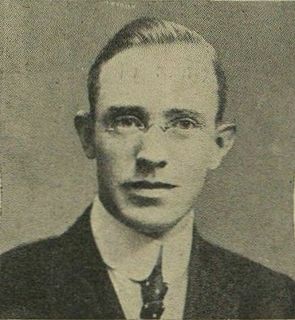 W
WIsaac Foot was a British Liberal politician and solicitor.
Henry Buxton Forman was a Victorian-era bibliographer and antiquarian bookseller whose literary reputation is based on his bibliographies of Percy Shelley and John Keats. In 1934 he was revealed to have been in a conspiracy with Thomas James Wise (1859–1937) to purvey large quantities of forged first editions of Georgian and Victorian authors.
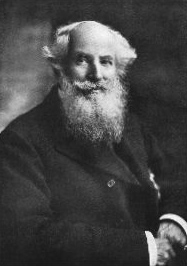 W
WFrederick James Furnivall was an English philologist, best known as one of the co-creators of the New English Dictionary. He founded a number of learned societies on early English literature and made pioneering and massive editorial contributions to the subject, of which the most notable was his parallel text edition of The Canterbury Tales. He was one of the founders of and teachers at the London Working Men's College and a lifelong campaigner against injustice.
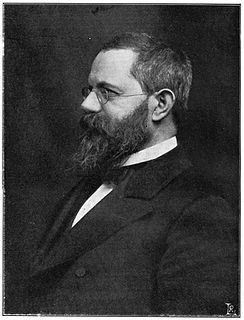 W
WMoses Gaster was a Romanian, later British scholar, the Hakham of the Spanish and Portuguese Jewish congregation, London, and a Hebrew and Romanian linguist. Moses Gaster was an active Zionist in Romania as well as in England, where in 1899 he helped establish the English Zionist Federation. He was the father of Jack and Theodor Gaster and the grandfather of Marghanita Laski. He was also son-in-law to Michael Friedländer and father-in-law to Neville Laski.
 W
WEdward Gibbon was an English historian, writer and Member of Parliament. His most important work, The History of the Decline and Fall of the Roman Empire, was published in six volumes between 1776 and 1788 and is known for the quality and irony of its prose, its use of primary sources, and its polemical criticism of organised religion.
 W
WRichard Heber was an English book-collector.
 W
WGeorge Hibbert was an English merchant, politician, slave-owner, ship-owner, amateur botanist and book collector. With Robert Milligan, he was also one of the principals of the West India Dock Company which instigated the construction of the West India Docks on London's Isle of Dogs in 1800. He also helped found the Royal National Lifeboat Institution in 1824.
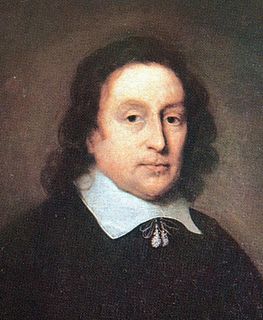 W
WMichael Honywood D.D. was an English churchman, Dean of Lincoln from 1660. Honywood was a bibliophile and he founded and funded the Lincoln Cathedral Library.
 W
WSir Geoffrey Langdon Keynes was an English surgeon and author. He began his career as a physician in World War I, before becoming a doctor at St Bartholomew's Hospital in London, where he made notable innovations in the fields of blood transfusion and breast cancer surgery. Keynes was also a publishing scholar and bibliographer of English literature and English medical history, focusing primarily on William Blake and William Harvey.
 W
WQuentin George Keynes was an explorer, writer, filmmaker, and bibliophile.
 W
WFrederick Locker-Lampson (1821–1895) was an English man of letters, bibliophile and poet.
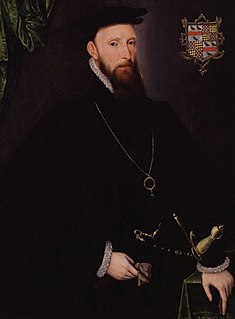 W
WJohn Lumley, 1st Baron Lumley was an English aristocrat, who is remembered as one of the greatest collectors of art and books of his age.
 W
WThe Lumley inventories are a group of inventories documenting the extensive collections of paintings, books, sculptures, silver and furniture accumulated by John, 1st Baron Lumley (c.1533–1609). The most celebrated of these, a manuscript volume which incorporates a considerable amount of heraldic and genealogical material as well as the inventory itself, is sometimes known as the "Red Velvet Book", and sometimes simply as "the Lumley Inventory". It is often dated to 1590, although it is in reality a more complex composite volume including material dating from 1586 to 1595. Further inventories were drawn up for purposes of probate on Lord Lumley's death in 1609; and others when parts of the collection were sold in the 18th and early 19th centuries.
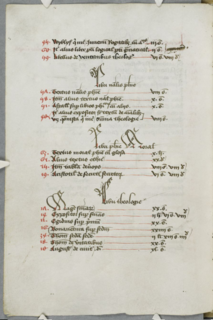 W
WThomas Markaunt was a Fellow and benefactor of Corpus Christi College, Cambridge University. He is best known for his sizeable bequest of seventy-five books to Corpus Christi library, which were lent out to the student body in a formal academic system of 'electio'. However he is also of note for his extensive compilation of early University records, known as "Markaunt's book", which gained him a historical reputation as an antiquarian. While the majority of his original bequest has not survived the centuries, the extensive electio records and surviving books have been the subject of much study.
 W
WGeorge Spencer-Churchill, 5th Duke of Marlborough FSA, styled Marquess of Blandford until 1817, was a British nobleman, politician, peer, and collector of antiquities and books.
 W
WThomas Martin, known as "Honest Tom Martin of Palgrave", was an antiquarian and lawyer.
 W
WChristopher Robin Milne was an English author and bookseller and the only child of author A. A. Milne. As a child, he was the basis of the character Christopher Robin in his father's Winnie-the-Pooh stories and in two books of poems.
 W
WEdward Harley, 2nd Earl of Oxford and Earl Mortimer, styled Lord Harley between 1711 and 1724, was a British politician, bibliophile, collector and patron of the arts.
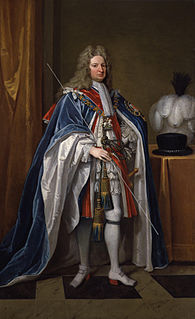 W
WRobert Harley, 1st Earl of Oxford and Earl Mortimer, KG PC FRS was an English and later British statesman of the late Stuart and early Georgian periods. He began his career as a Whig, before defecting to a new Tory Ministry. He was raised to the peerage of Great Britain as an earl in 1711. Between 1711 and 1714 he served as Lord High Treasurer, effectively Queen Anne's chief minister. He has been called a Prime Minister, although it is generally accepted that the de facto first minister to be a prime minister was Robert Walpole in 1721.
 W
WMartin Parr is a British documentary photographer, photojournalist and photobook collector. He is known for his photographic projects that take an intimate, satirical and anthropological look at aspects of modern life, in particular documenting the social classes of England, and more broadly the wealth of the Western world.
 W
WSamuel Pepys was an administrator of the navy of England and Member of Parliament who is most famous for the diary he kept for a decade while still a relatively young man. Pepys had no maritime experience, but he rose to be the Chief Secretary to the Admiralty under both King Charles II and King James II through patronage, hard work, and his talent for administration. His influence and reforms at the Admiralty were important in the early professionalisation of the Royal Navy.
 W
WSir Thomas Phillipps, 1st Baronet, was an English antiquary and book collector who amassed the largest collection of manuscript material in the 19th century. He was an illegitimate son of a textile manufacturer and inherited a substantial estate, which he spent almost entirely on vellum manuscripts and, when out of funds, borrowed heavily to buy manuscripts, thereby putting his family deep into debt. Phillipps recorded in an early catalogue that his collection was instigated by reading various accounts of the destruction of valuable manuscripts. Such was his devotion that he acquired some 40,000 printed books and 60,000 manuscripts, arguably the largest collection a single individual has created, and coined the term "vello-maniac" to describe his obsession, which is more commonly termed bibliomania.
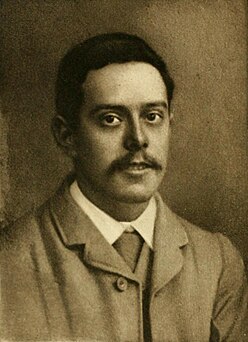 W
WRobert George Collier Proctor was an English bibliographer, librarian, book collector, and expert on incunabula and early typography.
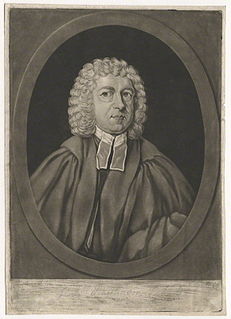 W
WRichard Rawlinson FRS was an English clergyman and antiquarian collector of books and manuscripts, which he bequeathed to the Bodleian Library, Oxford.
 W
WJohn Ker, 3rd Duke of Roxburghe, KG, KT, PC was a Scottish nobleman and bibliophile.
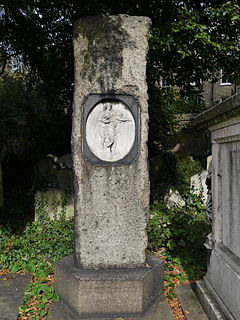 W
WSamuel Sotheby was an English auctioneer and antiquary.
 W
WGeorge John Spencer, 2nd Earl Spencer,, styled Viscount Althorp from 1765 to 1783, was a British Whig politician. He served as Home Secretary from 1806 to 1807 in the Ministry of All the Talents.
 W
WFrank Hall Standish was an English landowner and an art and book collector.
 W
WJohn Stow was an English historian and antiquarian. He wrote a series of chronicles of English history, published from 1565 onwards under such titles as The Summarie of Englyshe Chronicles, The Chronicles of England, and The Annales of England; and also A Survey of London. A. L. Rowse has described him as "one of the best historians of that age; indefatigable in the trouble he took, thorough and conscientious, accurate – above all things devoted to truth".
 W
WEdward Vernon Utterson was a British lawyer, literary antiquary, collector and editor. He was a fellow of the Society of Antiquaries, one of the original members of the Roxburghe Club, a member of the Athenaeum Club, Camden Society and Royal Society of Arts, Recorder of Chichester and a Trustee of the Royal Victoria Yacht Club. He went on to become one of the Six Clerks in Chancery, a position which he kept until his retirement on the abolition of the post in 1842, and also founded the Beldornie Press.
 W
WJohn Warburton (1682–1759) was an antiquarian, cartographer, and Somerset Herald of Arms in Ordinary at the College of Arms in the early 18th century.
 W
WHenry Booth, 1st Earl of Warrington was a Member of Parliament, Privy Councillor, Protestant protagonist in the Revolution of 1688, Mayor of Chester and author.
 W
WThomas Bartholomew Weld (1750-1810), known as Thomas Weld of Lulworth Castle, was a member of the English Catholic gentry, landowner, philanthropist and bibliophile. He was connected to many of the leading Catholic families of the land, such as the Bodenhams, Cliffords, Erringtons, Petres and Stourtons. He proved to be a great benefactor of the Society of Jesus in England in their educational and pastoral endeavours, as timely donor of his Stonyhurst estate in 1794. He was also a benefactor to other Roman Catholic religious and clergy. He was a personal friend of King George III. His sister-in-law was Maria Fitzherbert. After the French Revolution he hosted refugee remnants of the French royal family at his castle. He was the builder, in 1786, of the first Roman Catholic place of worship in England after the Protestant reformation.
 W
WRoger Wilbraham FRS was a British Member of Parliament (MP), bibliophile, antiquary, local historian and a patron of science and the arts. He had an extensive library and he published work on the Cheshire dialect.
 W
WThomas James Wise was a bibliophile who collected the Ashley Library, now housed by the British Library, and later became known for the literary forgeries and stolen documents that were resold or authenticated by him.
 W
WThe Venerable Francis Wrangham was the Archdeacon of the East Riding. He was a noted author, translator, book collector and abolitionist.